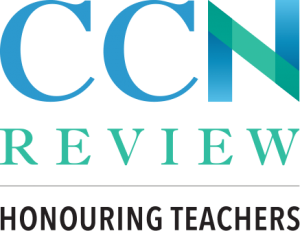Please sign in first
Not a member?
Honorary Lectureship
The Wallace - Cusimano Lectureship
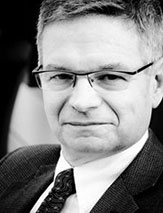
M. Christopher Wallace
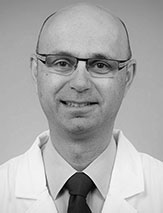
Michael D. Cusimano
The Wallace-Cusimano Lectureship has been designed to honour two teachers whom have made a huge positive impact on their students, and continue to demonstrate a unique approach in educating future generations of Neurosurgery.
Professors Wallace and Cusimano are outstanding teachers of neurosurgery, having a strong and significant influence on my personal success. In addition, they are extra ordinary clinicians in their sub specialty fields (Cerebrovascular for Chris Wallace and Skullbase for Michael Cusimano). This is a small way to thank them for their devotion to education in the field of medicine; specifically neurosurgery.
The candidate professor receiving The Wallace Cusimano Honorary Lectureship should exemplify many of these characters mentioned above. Therefore, our choice for the year 2024 honorary lecturer is Robert Spiner from Rochester, New York. I am excited that Professor Robert Spinner has accepted this honorary title.
![]()
Nabeel
Course Director
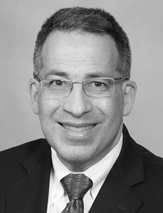
Robert Spinner - 2024 Honorary Lecturer
Robert J. Spinner, M.D., is a peripheral nerve surgeon at the Mayo Clinic in Rochester, Minnesota. He is chair of the Department of Neurologic Surgery and is the Burton M. Onofrio, M.D. Professor of Neurosurgery as well as a professor of orthopedics and anatomy. He completed full residency programs in orthopedics and neurosurgery and a one-year peripheral nerve fellowship. He is board certified in both neurosurgery and orthopedics. He has served as the president of the American Society for Peripheral Nerve and the Sunderland Society (an international peripheral nerve study group).
His clinical focus includes:
Nerve entrapments
Peripheral nerve tumors (benign and malignant)
Injuries (including brachial plexus injuries)
Neuropathic pain
In addition to his clinical activities, Dr. Spinner is active in clinical and basic science (nerve regeneration). He mentors clinical and research fellows. He publishes in high-impact journals and presents frequently both nationally and internationally on topics related to peripheral nerve disorders.
Dr. Spinner chaired the Academic Appointments and Promotions Committee at Mayo for 8 years.
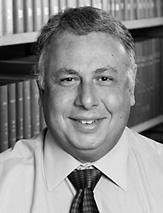
Ramez Kirollos - 2023 Honorary Lecturer
Dr Ramez Wadie Kirollos graduated from the Medical School at the University of Alexandria in Egypt in 1984. In 1987, he moved to the United Kingdom to pursue his post-graduate medical education. He received the prestigious Royal College of Surgeons of England Hallett Prize given to the candidate with the highest score at the fellowship examination (FRCS Eng). Dr Kirollos trained in neurosurgery at the Atkinson Morley Hospital in London, the Frenchay Hospital in Bristol, the Leeds General Infirmary, and the Walton Centre for Neurology and Neurosurgery in Liverpool. He obtained an MD (Doctor of Medicine) degree for his research into photodynamic therapy of pituitary adenomas. Dr Kirollos completed a skull base fellowship under Dr Gentili at the Toronto Western Hospital.
In 2001, he was appointed Consultant Neurosurgeon at the Addenbrooke’s Cambridge University Hospital and associate lecturer in Cambridge University clinical school until June 2018. His main clinical interests include skull base, pituitary and pineal surgery, and surgical treatment of AVMs. He has performed over 670 aneurysm operations. He was in the past the President of the British Neurovascular Group, President and co-founder of the British-Irish Meningioma Society, member of the postgraduate educational committee of the EANS, ex officio member of the SBNS council as representative for the SBNS to the EANS and WFNS and currently is a member of the neuro-oncology committee of the WFNS. Dr Kirollos has over 75 publications, 100 presentations, 30 invited lectures and written few chapters and a book and is the co-editor of the Oxford Textbook of Neurosurgery.
Dr Kirollos has been actively involved in day-to-day teaching of medical students, junior and middle grade neurosurgical trainees. Dr Kirollos co-founded and directed the Cambridge lectures in Neurosurgical Anatomy in 2005 and the British Neurosurgical Trainee Courses in 2010 and serves as a faculty on the Neuroanatomy of Operative Approaches since its conception in 2005 and numerous national and international courses. In 2006 Dr Kirollos was elected as a member of the Court of Examiners of the Royal College of Surgeons of England. For his commitment to surgical education he received the prestigious Silver Scalpel Award in 2010.
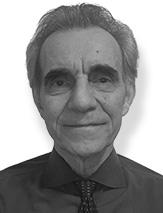
Fred Gentili - 2022 Honorary Lecturer
Dr. Gentili graduated from the University of Toronto Medical School in 1972. After a surgical internship, he entered the laboratory and worked towards a Masters degree in the Institute of Medical Science which he received in 1975. Dr. Gentili entered the Neurosurgical Training Program at the University of Toronto in 1975, and became a Fellow of the Royal College of Physicians and Surgeons of Canada in 1980. He did clinical fellowships in neurosurgery at St. Michael’s Hospital, the University of Zurich (under Professor Yasagil), and at the National Hospital in London (under Lyndsay Symon) from 1979-1981. Dr. Gentili joined the Neurosurgery Staff at the Toronto General Hospital in 1982. He is currently Professor in the Department of Surgery and Director of the Skull Base Centre at the University of Toronto. His main interests are in skull base, vascular, and pituitary neurosurgery, and he is regarded among his peers as being highly meticulous in the OR. He is also an exceptional teacher and has trained numerous international fellows. He is married to Gina and they have two sons, Michael and David.
2021 Honorary Lecturer (COVID 19)
Due to COVID-19, we canceled the Honorary Lecturer for this year.
2020 Honorary Lecturer (COVID 19)
Due to COVID-19, we canceled the Honorary Lecturer for this year.
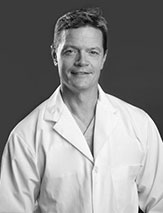
John Hurlbert, 2019 Honorary Lecturer
John Hurlbert
Dr. Hurlbert was born in Kinistino, Saskatchewan on May 7, 1960. He attended high school and spent his first two years of university in Regina majoring in biochemistry. He graduated from medical school at the University of Saskatchewan in Saskatoon in June of 1995. After a rotating internship at the Regina General Hospital he spent the next 10 years completing his Neurosurgical Residency and a PhD in Spinal Cord Injury research at the University of Toronto. He undertook two further complex spine surgery fellowships: one at the Toronto Western Hospital with Michael Fehlings, and one at the Barrow Neurological Institute with Volker Sonntag.
From 1996-2016 Dr. Hurlbert was faculty in the Division of Neurosurgery at the University of Calgary, holding a cross-appointment with the Division of Orthopedic Surgery. He was the founding chairman of the University of Calgary Spine Program and the founding president of the Canadian Spine Society. While in Calgary he was the Neurosurgery Residency Program Director for 11 years. He was appointed to the Royal College of Physicians and Surgeons Neurosurgery Examination Committee in 2005 and served as Exam Chair from 2010-2015. He continues to work with the Royal College as part of the Examination Review Unit. Dr. Hurlbert is a Past-Chair of the AANS/CNS Section on Disorders of the Spine and Peripheral Nerves and has been a member of the executive committee for this organization for 15 years.
In 2016 he took a position as Professor with the University of Arizona in Tucson where he continues to train residents and is building a complex spine fellowship program. Dr. Hurlbert’s clinical interests encompass spinal cord injury and complex cervical decompression and reconstruction. His research efforts are directed towards spinal cord injury and degenerative spine disease. He hopes that methylprednisolone is now a distant part of his past.
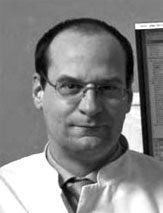
Timo Krings, 2018 Honorary Lecturer
Timo Krings
Dr. Krings studied medicine in Aachen, Germany and at Harvard Medical School in Boston. After residency training in Neuroradiology in Aachen with Prof. Armin Thron, he completed a neurointerventional fellowship with Professor Pierre Lasjaunias in Paris, France and subsequently joined the Neuroradiology division of the University of Toronto as a diagnostic and interventional Neuroradiologist in 2008. He is currently cross appointed to Radiology and Neurosurgery at UHN and as an interventional Neuroradiologist at the Hospital for Sick Children. He is a Full Professor of Radiology and Surgery, the Chief of Radiology at the Toronto Western Hospital and the Head of the Division of Diagnostic and Interventional Neuroradiology at the University Health Network, Mount Sinai and Women’s College Hospitals. He holds the David Braley and Nancy Gordon Chair in Interventional Neuroradiology at the University of Toronto.
Focusing his research efforts on Imaging and Treatment of Neurovascular Diseases, Dr. Krings has published more than 360 peer reviewed articles, and approximately 30 book chapters and four books on spinal, pediatric and interventional neuroradiology, and neurovascular anatomy. His current research focusses on the prediction of brain bleeding from brain vascular malformations using a multidiscplinary approach, development of novel methods to treat these life changing events and estimating the relative effectiveness of treatments to determine the impact on Health Care. To this end he is leading a team of Neuro-imagers, Neurointerventionalists, Computational Scientists, Genetist Biologists and Epidemiologists within the Division of Neuroradiology.
Dr. Krings’s leadership in the field of Neuroradiology is bolstered by his distinguished grants and awards, including the Scientific Award of the European Society of Neuroradiology, the Lucien Appel Prize, and the Founders Award in Interventional Neuroradiology of the ESNR. For the development of the Neuroradiology Program in Toronto he won the Anderson Award of the Wightman-Berris Academy and was granted the Edward Lansdown Award for outstanding teaching in the Residency Program of the University of Toronto.
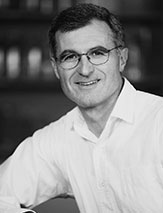
John P. Rossiter, 2017 Honorary Lecturer
John P. Rossiter
MB, BCh, PhD
Professor Neuropathology
Department of Pathology and Molecular Medicine
Queen’s University and Kingston Health Sciences Centre
Past Chair of RCPSC Neuropathology examination board
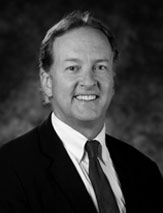
William T. Couldwell, 2016 Honorary Lecturer
William T. Couldwell
Dr. William Couldwell was born in Canada and received his MD and Ph.D. Degrees from McGill University, Montreal, Quebec. He trained in Neurological Surgery at the University of Southern California (USC) in Los Angeles, California.
Upon completion of his residency, Dr. Couldwell did fellowship training in Canada at the Montreal Neurological Institute and Switzerland. He subsequently joined the faculty at USC and in 1996 accepted a position as Professor and Chairman of the Department of Neurological Surgery, at the New York Medical College, (1996-2001).
Since 2002 Dr. Couldwell has served as the Professor and Chairman of the Department of Neurosurgery at the University of Utah in Salt Lake City. He has served as a Director of the American Board of Neurological Surgery, and is Past-President of the American Association of Neurological Surgeons. He has over 350 peer-reviewed publications and has been the recipient of several federal (NIH) and other research grants).
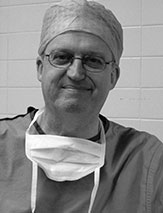
Andre Grotenhuis, 2015 Honorary Lecturer
Andre Grotenhuis
Dr. Andre Grotenhuis is a Clinical Professor of Neurosurgery at the Radboud University Medical Centre) Nijmegen, the Netherlands and from 1999-2010 he has been the chairman of the department and the training program director. Since 2010 his focus is now away from management and more to clinical work, teaching and research in neurosurgery.
Initially studying medicine at the Catholic University of Nijmegen until 1979, Dr. Grotenhuis later completed neurosurgical residency training at the Academisches Lehrkrankenhaus Stadtische Kliniken in Duisburg, Germany. Board certified in both Germany and the Netherlands, he went on to complete multiple fellowships at the University Clinic in Vienna, Austria in 1985, Karolinska Sjukhuset in Stockhom, Sweden in 1986 and the Hospital for Sick Children in Toronto, Canada. He defended a PhD thesis in December 2000 on ‘Endoscopic third Ventriculostomy in the treatment of hydrocephalus’.
He currently sits as Secretary and President-elect of EANS (European Association of Neurosurgical Societies), Chairman of the Committee of Medico-Legal Expertise, Chairman of the Consilium Neurochirugicum and member of the Accreditation Committee of the NVvN (Dutch Neurosurgical Society).
He holds multiple memberships and the Medical Advisor for the Dutch Foundation of Pituitary Diseases. He has been the delegate for the Netherlands in the EANS Training Committee for ten years and he is also the delegate for the Netherlands at the WFNS. While co-founder and member of the editorial board for the journal ‘Minimally Invasive Neurosurgery’ for many years and now for ‘Innovative Neurosurgery’, he likewise is an active reviewer for several journals including Neurosurgery, Journal of Neurosurgery, Central European Neurosurgery, Clinical Neurology and Neurosurgery, Neurosurgical Review, Acta Neurochirurgica, to name a few. He has authored two books, 21 book chapters, more than ninety peer-reviewed scientific publications and given more than 400 (international) lectures and presentations.
